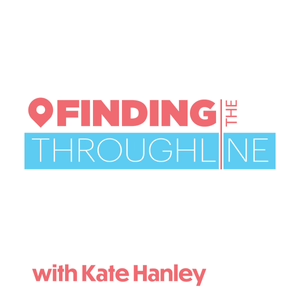
Off-Label Promotion Changes in 2025
02/24/25 • 31 min
Stephanie Trunk and Darshan Kulkarni discuss the evolving landscape of the pharmaceutical industry under the Trump Administration in 2025. They highlight the uncertainty surrounding regulatory changes, particularly with new leadership at the FDA, CMS, and HHS (with RFK confirmed). There is concern over shifting prosecutorial priorities, overturned FDA diversity initiatives, and potential scrutiny of diversity efforts in private companies.
A major focus is the changing environment of off-label marketing, where reliance on FDA guidances is being replaced by stricter adherence to statutory regulations due to court rulings like Coronia and Loper Bright . This shift creates uncertainty for regulated industries, as enforcement becomes less predictable.
Key Topics Discussed:
Off-Label Promotion & Enforcement:
- Off-label use is legal, but off-label promotion remains a complex issue.
- Enforcement is increasingly driven by the False Claims Act, with oversight from multiple agencies (FDA, FTC, DOJ, OIG, CMS).
- The blurring of lines between medical and sales functions is a growing concern, especially with AI chatbots playing a role in medical communications.
Compounding & the GLP-1 Market:
- The discussion explores drug compounding, particularly regarding GLP-1 weight loss medications.
- Regulatory challenges stem from drug shortages, compounding rules, and market competition, with potential Lanham Act violations and unfair competition claims.
- The Inflation Reduction Act and its implications for drug shortages and penalties are also considered.
Key Compliance Considerations:
- Maintaining clear separation between sales and medical functions.
- Ensuring compliance with FDA promotional material regulations.
- Managing risks related to AI chatbots and speaker programs.
- Implementing robust compliance programs in line with DOJ, OIG, and FDA guidelines.
- Understanding the growing role of state attorneys general and competitor-driven enforcement actions.
The overall sentiment reflects industry uncertainty as pharmaceutical companies navigate regulatory and legal shifts in this new landscape.
Stephanie Trunk and Darshan Kulkarni discuss the evolving landscape of the pharmaceutical industry under the Trump Administration in 2025. They highlight the uncertainty surrounding regulatory changes, particularly with new leadership at the FDA, CMS, and HHS (with RFK confirmed). There is concern over shifting prosecutorial priorities, overturned FDA diversity initiatives, and potential scrutiny of diversity efforts in private companies.
A major focus is the changing environment of off-label marketing, where reliance on FDA guidances is being replaced by stricter adherence to statutory regulations due to court rulings like Coronia and Loper Bright . This shift creates uncertainty for regulated industries, as enforcement becomes less predictable.
Key Topics Discussed:
Off-Label Promotion & Enforcement:
- Off-label use is legal, but off-label promotion remains a complex issue.
- Enforcement is increasingly driven by the False Claims Act, with oversight from multiple agencies (FDA, FTC, DOJ, OIG, CMS).
- The blurring of lines between medical and sales functions is a growing concern, especially with AI chatbots playing a role in medical communications.
Compounding & the GLP-1 Market:
- The discussion explores drug compounding, particularly regarding GLP-1 weight loss medications.
- Regulatory challenges stem from drug shortages, compounding rules, and market competition, with potential Lanham Act violations and unfair competition claims.
- The Inflation Reduction Act and its implications for drug shortages and penalties are also considered.
Key Compliance Considerations:
- Maintaining clear separation between sales and medical functions.
- Ensuring compliance with FDA promotional material regulations.
- Managing risks related to AI chatbots and speaker programs.
- Implementing robust compliance programs in line with DOJ, OIG, and FDA guidelines.
- Understanding the growing role of state attorneys general and competitor-driven enforcement actions.
The overall sentiment reflects industry uncertainty as pharmaceutical companies navigate regulatory and legal shifts in this new landscape.
Previous Episode

Turning Physicians into Leaders
Kate Woods interviews Lee Scheinbart, who shares valuable advice for physicians aspiring to become Chief Medical Officers (CMOs) or take on leadership roles in healthcare. Lee stresses the importance of being intentional in career decisions and encourages young physician leaders to first focus on becoming competent clinicians. He advises earning medical degrees, completing training, and gaining clinical experience for 5 to 10 years before transitioning into leadership.
Lee also discusses the financial pitfalls physician leaders often face, particularly not recognizing their own value. He explains how clinical expertise can reduce waste and inefficiencies in healthcare organizations, bringing significant value beyond patient care. He also emphasizes the importance of collaboration between clinicians and non-clinical peers, advocating for mutual understanding and respect to strengthen healthcare teams.
Additionally, Lee talks about his podcast "Fire Chief," which addresses disaster management and crisis leadership for CMOs. He shares his experiences in high-pressure situations like the COVID-19 pandemic and offers advice on managing stress, urging future leaders to stay proactive in maintaining their well-being. Lee concludes by encouraging aspiring leaders to focus on developing their leadership skills and find mentors to guide them in their career journey.
Next Episode

Protecting Patient Data in a Changing Regulatory Landscape
In this discussion, Edye Edens and Helen Maurer dive into the critical topic of data privacy and security in clinical research, particularly in light of potential federal oversight. Helen, an expert in compliance and quality assurance within oncology research, emphasizes the need for clinical trial sites—especially those at major academic medical centers—to understand whether their privacy regulations fall under state or federal jurisdiction. They explore hypothetical scenarios where federal agencies or other entities might request access to clinical trial data, questioning the potential motivations behind such requests, including public health initiatives or policy changes. Edye and Helen stress the importance of ensuring that participant data remains protected, that any data-sharing aligns with consent agreements, and that institutions are prepared to navigate these complex regulatory challenges. Given the rapidly shifting legal landscape, they highlight the need for vigilance and proactive compliance strategies to safeguard sensitive healthcare data.
If you like this episode you’ll love
Episode Comments
Generate a badge
Get a badge for your website that links back to this episode
<a href="https://goodpods.com/podcasts/darshantalks-podcast-403650/off-label-promotion-changes-in-2025-86126114"> <img src="https://storage.googleapis.com/goodpods-images-bucket/badges/generic-badge-1.svg" alt="listen to off-label promotion changes in 2025 on goodpods" style="width: 225px" /> </a>
Copy




